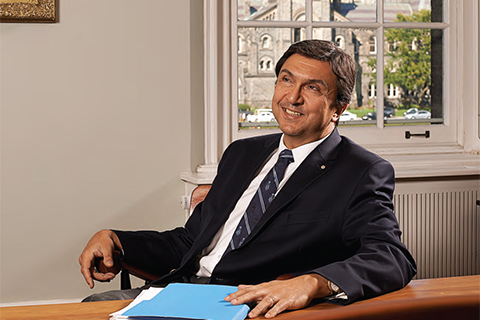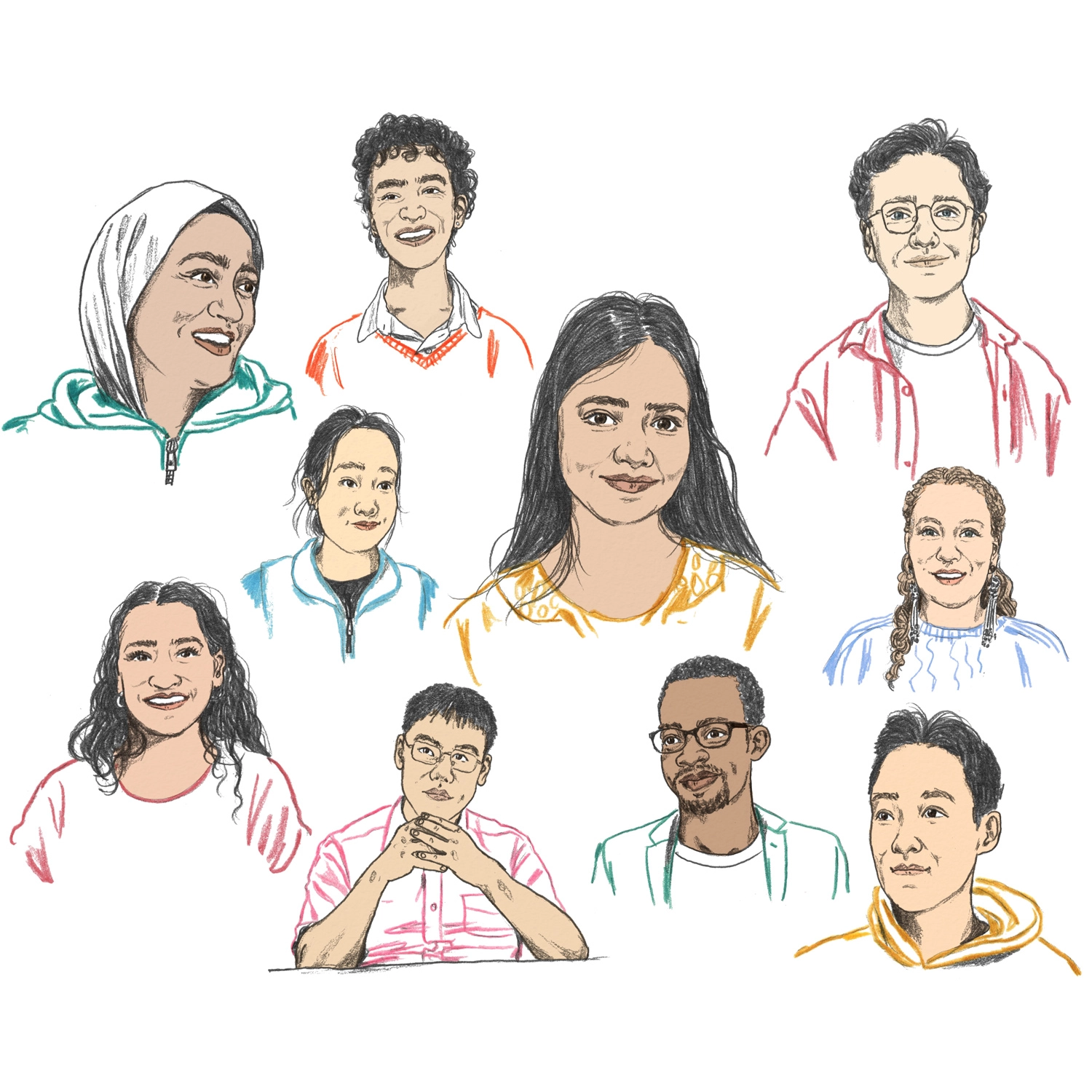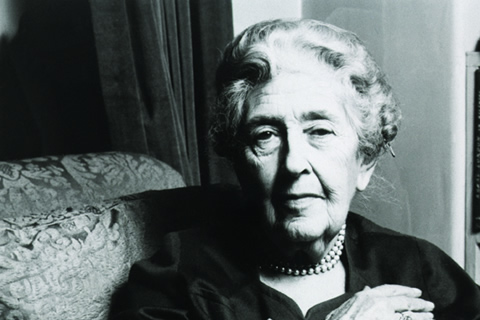Two years ago, I visited an experimental school affiliated with Beijing Normal University where the students gave a new meaning to that old phrase “best and brightest.” The school was already a proud partner in the Green Path program at our Scarborough campus, and the list of top schools partnering with U of T Scarborough continues to grow. This June, the Green Path program will welcome more than 100 young people from China who will spend three months settling into life in Toronto before starting undergraduate degrees on our east campus.
It’s just one example of how U of T’s three campuses have adopted a more international outlook. International students represent about 10 per cent of our total student population. Thousands of our domestic students are first-generation Canadians. And each year more than half of our tenure stream professors are recruited from outside Canada – stark proof of the mobility of talent in the modern world.
U of T’s growing internationalism is a great strength. More than any previous generation, today’s students will be global citizens. Through the wonders of Facebook, their social networks already extend readily across national borders. In many cases, their careers will also play out on a global scale. Indeed, as the economic and intellectual influence of other countries grows, Canada needs more citizens who understand and can work in a variety of languages and cultures.
The University of Toronto is superbly placed to meet that need. Situated in the world’s most multicultural urban region, the university is also a hotbed for international research collaborations. In journals and at conferences, U of T students and faculty develop and exchange ideas with colleagues in other countries who are leaders in their field. U of T has formed strong partnerships with top-ranked universities around the world to create opportunities for faculty to be global academic leaders, and to open doors for students. The Faculty of Arts and Science, for example, has signed agreements with 100 institutions outside of Canada, allowing U of T undergraduates to take courses (for credit) without having to pay additional tuition. Some agreements also permit master’s and PhD students and faculty to work on a research team at the partner institution.
For many years, the University of Toronto has given students the opportunity to spend part of their summer studying in a foreign city, such as Berlin, Shanghai or Nairobi. Last year, 840 students visited 13 countries through the Summer Abroad program. In addition to encouraging students to broaden their academic experience outside of Canada, U of T offers myriad courses and programs with a global focus. The Munk Centre’s School of International Studies is Canada’s leading voice on global affairs and international relations. The Trudeau Centre for Peace and Conflict Studies at University College examines the root causes of violence and how to extend Canada’s role in the world as a peacemaker. Students can also earn an undergraduate degree in international relations at Trinity College or in international development studies at U of T Scarborough, to cite just two examples. Over 50 languages are taught here, more than at any university in Canada.
These are positive steps, but when commerce is international and challenges such as climate change are global, we must do more. Every student – not just one in 20 or one in 30 – should have the chance to gain a meaningful international experience while attending U of T. We need more collaboration with research-intensive sister institutions worldwide. And while U of T is already one of Canada’s most diverse universities, we must boost international student recruitment to attract the finest young minds from around the world.
Marshall McLuhan, the great media scholar and founding director of U of T’s Centre for Communication and Technology, coined the term “global village” 30 years before the dawn of the Internet era to describe a new, worldwide collective identity fostered by electronic communication. By increasing the international opportunities available to students and faculty, U of T aims to enhance Canada’s capacity to thrive in a world that’s more interconnected than ever.






